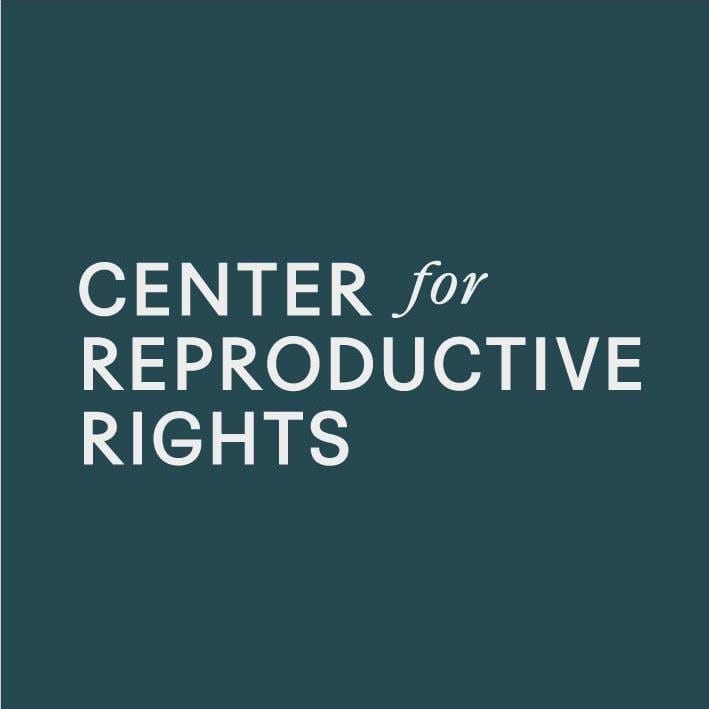Women Denied Abortions File Legal Actions in Idaho, Tennessee, and Oklahoma
Eight women across three states are taking legal action after being denied abortions in dire situations; their cases illustrate the nationwide health crisis caused by abortion bans
09.12.23 (PRESS RELEASE) – Today, the Center for Reproductive Rights filed legal actions in three states where abortion is banned—Idaho, Tennessee, and Oklahoma. These actions were filed on behalf of eight women who were denied abortions despite dangerous pregnancy complications, along with four OB-GYNs and a leading Idaho medical organization. All eight women faced serious complications, and some were forced to continue carrying their pregnancies even though the fetus would not survive. Today’s legal actions seek to ensure that pregnant people in such dire situations can access abortion care in these states, and that doctors are given clarity on what situations qualify under the “medical emergency” exceptions in their state’s abortion bans. Doctors who violate the bans risk years in prison, hefty fines, and loss of licensure, and have thus been fearful to provide abortion care in many life-threatening circumstances.
These filings come a few months after 13 women sued the state of Texas for being denied abortion care despite facing similarly risky pregnancy complications. A judge in that case recently ruled that all the women in that case should have been given abortions and clarified the scope of the exceptions to Texas’s abortion bans—though the ruling has been appealed by the state and is now on hold. Like in Texas, the actions filed today are seeking clarity that pregnant people facing such dangerous situations can get the care they need in their home states.
“The Supreme Court’s unwarranted reversal of Roe v. Wade has led repeatedly, in multiple states, to women being denied abortion care when they face serious complications in their pregnancies,” said Nancy Northup, president and CEO of the Center for Reproductive Rights. “No one should have to be at death’s door to receive essential health care, but that is exactly what happens when doctors are forced to practice medicine under threat of imprisonment. Abortion bans across the nation are exposing pregnant people to risks of death, illness, and injury, including loss of fertility. The women standing up today survived, but it is only a matter of time before someone does not.”
Two lawsuits were filed in Idaho and Tennessee asking state courts to clarify what circumstances qualify under the “medical emergency” exceptions in the states’ abortion bans. The confusing language and non-medical terminology in these bans have left doctors uncertain when they are legally able to provide abortion care. It’s unclear how sick or near-death a patient must be before a doctor can intervene. There is also no exception in Idaho or Tennessee for situations where the fetus has a fatal condition and would not survive. The lawsuits ask the courts to clarify that the exceptions include such fatal diagnoses, which jeopardize pregnant people’s health.
In Oklahoma, doctors and hospitals have been experiencing similar confusion and trepidation because of the state’s total abortion ban. One woman, Jaci Statton, was turned away from an Oklahoma emergency room despite having a partial molar pregnancy—a dangerous, non-viable pregnancy that could have become cancerous and requires urgent care. The Center filed a complaint today on behalf of Jaci with the U.S. Department of Health and Human Services, arguing that Oklahoma Children’s Hospital violated the Emergency Medical Treatment and Labor Act (EMTALA) in denying her an abortion. EMTALA requires emergency rooms to provide “stabilizing” care, which can include abortions to patients facing medical emergencies.
All three legal actions seek to protect pregnant people’s access to abortion care during dangerous medical situations and to ensure that doctors can use their own medical judgment to provide that care without fear of prosecution. Without clarity or guidance, pregnant people are being forced to either wait until they are on the brink of death to receive care or flee the state if they are able.
Quotes from plaintiffs:
“Because of the state’s cruel laws, I was forced to carry a baby for months that was never going to live. I was in terrible pain and could even have had a stroke and died, but I could not afford to travel out of state for an abortion.” said Nicole Blackmon, one of the plaintiffs suing the state of Tennessee. “I was condemned to endure both physical and emotional torture, knowing that I was going to deliver a stillborn. How can Tennessee politicians stand by while this happens to people like me? I want some good to come out of my ordeal, so I am joining this case.”
“It was crushing when I learned that my baby was not expected to survive and that my life was in danger. I knew right away that I needed an abortion to save my life and to make sure that I was here and healthy for my family, including my now 2-year-old son. But the fact that I couldn’t get the abortion care I urgently needed in Idaho just added to our misery,” said plaintiff Jennifer Adkins joining the case in Idaho. “We had to scramble to come up with the funds to travel for an abortion. No one deserves this heartache. It makes me angry to know that this is happening to countless Idahoans and others across the country.”
“In my 16-year career as an OB/GYN, I have provided care to thousands of pregnant people and routinely treat patients with pregnancy complications, including by providing abortion care. But Idaho’s vaguely worded bans have made it impossible to know whether I can provide the standard care I previously offered without facing severe punishment,” said Dr. Emily Corrigan, OB/GYN based in Boise, Idaho. “I regularly see patients who have been denied emergency medical care at hospitals across the state and too many are being forced to travel hundreds of miles out of state for abortions at great financial, physical, and emotional expense. As a doctor, I have a responsibility to serve my patients’ best interests, so I am joining this case to protect them and healthcare access in Idaho.”
“The Idaho Academy of Family Physicians is made up of nearly 700 physicians, residents, and medical students across the state. Family physicians are a crucial source of reproductive health care in our state—one-third of our members provide obstetric care as part of their family medicine services and many of them serve rural communities,” said Dr. John Williams, Board President of the Idaho Academy of Family Physicians. “Over the last year, Idaho’s laws have caused confusion among our members and doctors in the state. This is unsustainable in an already strained healthcare system that’s experiencing a significant exodus of doctors. We urgently need clarity on these laws in order to protect both pregnant Idahoans and our doctors, and to prevent further irreversible harm.”
“Oklahoma’s laws nearly killed me. Even though I had an extremely dangerous pregnancy and was repeatedly bleeding, I was told to wait in a hospital parking lot until I was near death in order to get the life-saving care I needed,” said Jaci Statton from Oklahoma who is filing a federal EMTALA complaint. “I ended up having to travel almost 200 miles out of state for care—it was the longest and most terrifying ride of my life. No one ever thinks they need an abortion, but I am living proof that abortion is healthcare. It’s not safe to be pregnant in Oklahoma. With this complaint, I want to make sure that no one else has to suffer the way I did.”
You can read more about each plaintiff here.
Plaintiff photos for media use can be found here (credit: Splash Cinema).
The Center for Reproductive Rights is dedicated to helping all people access abortion in their communities, including people who are denied care while facing pregnancy complications. If you have been denied care and want to speak to a lawyer about your options, please reach out to [email protected]
The lawsuit in Tennessee was filed by the Center for Reproductive Rights, Morrison & Foerster LLP, and Barrett, Johnston, Martin, & Garrison LLC on behalf of plaintiffs Nicole Blackmon; Allyson Phillips; Kaitlyn Dulong; Heather Maune, M.D.; and Laura Andreson, D.O.
The case in Idaho was filed by the Center for Reproductive Rights, O’Melveny & Myers LLP, and Nevin, Benjamin & McKay LLP on behalf of plaintiffs Jennifer Adkins; Jillaine St.Michel; Kayla Smith; Rebecca Vincen-Brown; Emily Corrigan, M.D.; Julie Lyons, M.D.; and Idaho Academy of Family Physicians.
In Oklahoma, an EMTALA complaint was filed on behalf of Jaci Statton by the Center for Reproductive Rights.
###
MEDIA CONTACT: [email protected]


